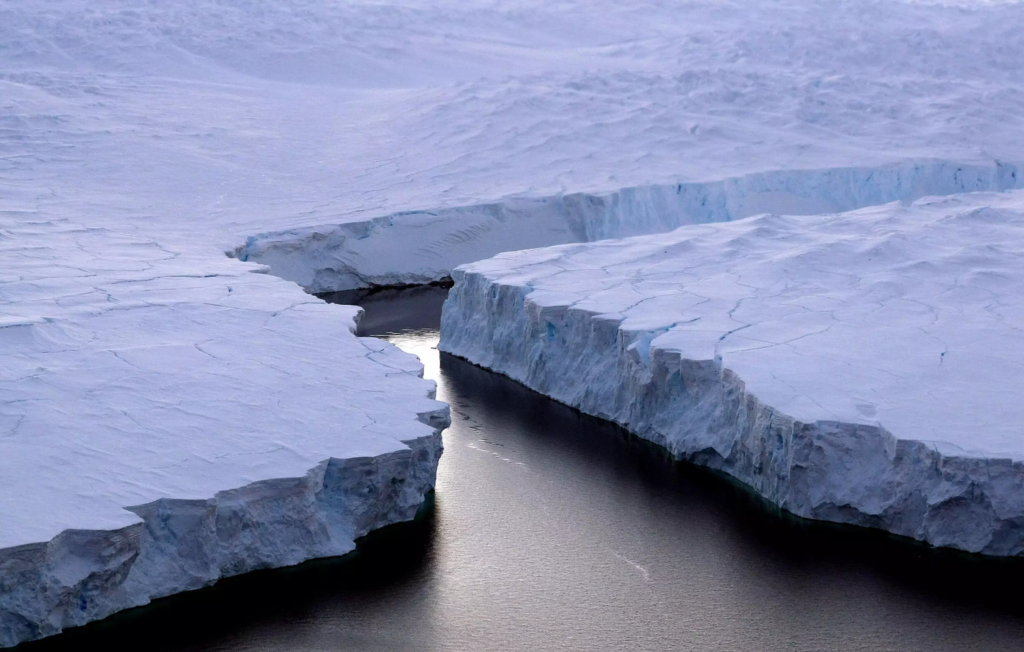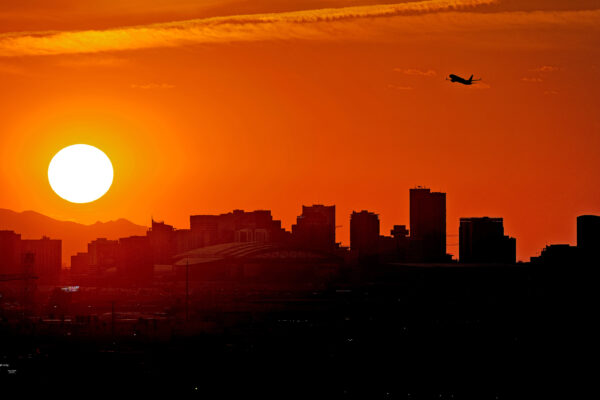Geneva (AFP) – This year is set to be the hottest ever recorded, the UN said Thursday, demanding urgent action to rein in global warming and stem the havoc following in its wake.
The UN’s World Meteorological Organization warned that 2023 had shattered a whole host of climate records, with extreme weather leaving “a trail of devastation and despair”.
“It’s a deafening cacophony of broken records,” said WMO chief Petteri Taalas.
“Greenhouse gas levels are record high. Global temperatures are record high. Sea level rise is record high. Antarctic sea ice is record low.”
The WMO published its provisional 2023 State of the Global Climate report as world leaders gathered in Dubai for the UN COP28 climate conference, amid mounting pressure to curb planet-heating greenhouse gas pollution.
United Nations chief Antonio Guterres said the record heat findings “should send shivers down the spines of world leaders”.
The stakes have never been higher, with scientists warning that the ability to limit warming to a manageable level is slipping through humanity’s fingers.
The 2015 Paris Climate Accords aimed to limit global warming to well below two degrees Celsius above pre-industrial levels — and 1.5C if possible.
But in its report, the WMO said 2023 data to the end of October showed that this year was already around 1.4C above the pre-industrial baseline.
‘Not just statistics’
The agency is due to publish its final State of the Global Climate 2023 report in the first half of 2024.
But it said the difference between the first 10 months of this year and 2016 and 2020 — which previously topped the charts as the warmest years on record — “is such that the final two months are very unlikely to affect the ranking”.
The report also showed that the past nine years were the hottest years since modern records began.
“These are more than just statistics,” Taalas said, warning that “we risk losing the race to save our glaciers and to rein in sea level rise”.
“We cannot return to the climate of the 20th century, but we must act now to limit the risks of an increasingly inhospitable climate in this and the coming centuries.”
The WMO warned that the warming El Nino weather phenomenon, which emerged mid-year, was “likely to further fuel the heat in 2024”.
That is because the naturally occurring climate pattern, typically associated with increased heat worldwide, usually increases global temperatures in the year after it develops.
The preliminary report also found that concentrations of the three main heat-trapping greenhouse gases — carbon dioxide, methane, and nitrous oxide — reached record-high levels in 2022, with preliminary data indicating that the levels continued to grow this year.
Carbon dioxide levels were 50 percent higher than in the pre-industrial era, the agency said, meaning that “temperatures will continue to rise for many years to come”, even if emissions are drastically cut.
‘Climate chaos’
The rate of sea level rise over the past decade was more than twice the rate of the first decade of satellite records (1993-2002), it said.

A chunk of Antarctic ice the size of France and Germany combined has disappeared this year © TORSTEN BLACKWOOD / AFP
And the maximum level of Antarctic sea ice this year was the lowest on record.
It was a million square kilometers less than the previous record low at the end of the southern hemisphere winter, the WMO said — an area larger than France and Germany combined.
Meanwhile, glaciers in North America and Europe again suffered an extreme melt season, with Swiss glaciers losing 10 percent of their ice volume in the past two years alone, the report showed.
Dramatic socio-economic impacts accompany such climate records, experts say, including dwindling food security and mass displacement.
“This year we have seen communities around the world pounded by fires, floods and searing temperatures,” UN chief Guterres said in a video message.
He called on the leaders gathered in Dubai to commit to dramatic measures to rein in climate change, including phasing out fossil fuels and tripling renewable energy capacity.
“We have the roadmap to limit the rise in global temperature to 1.5C and avoid the worst of climate chaos,” he said.
“But we need leaders to fire the starting gun at COP28 on a race to keep the 1.5 degree limit alive.”
FRANCE24/AFP


Leave a Reply
You must be logged in to post a comment.